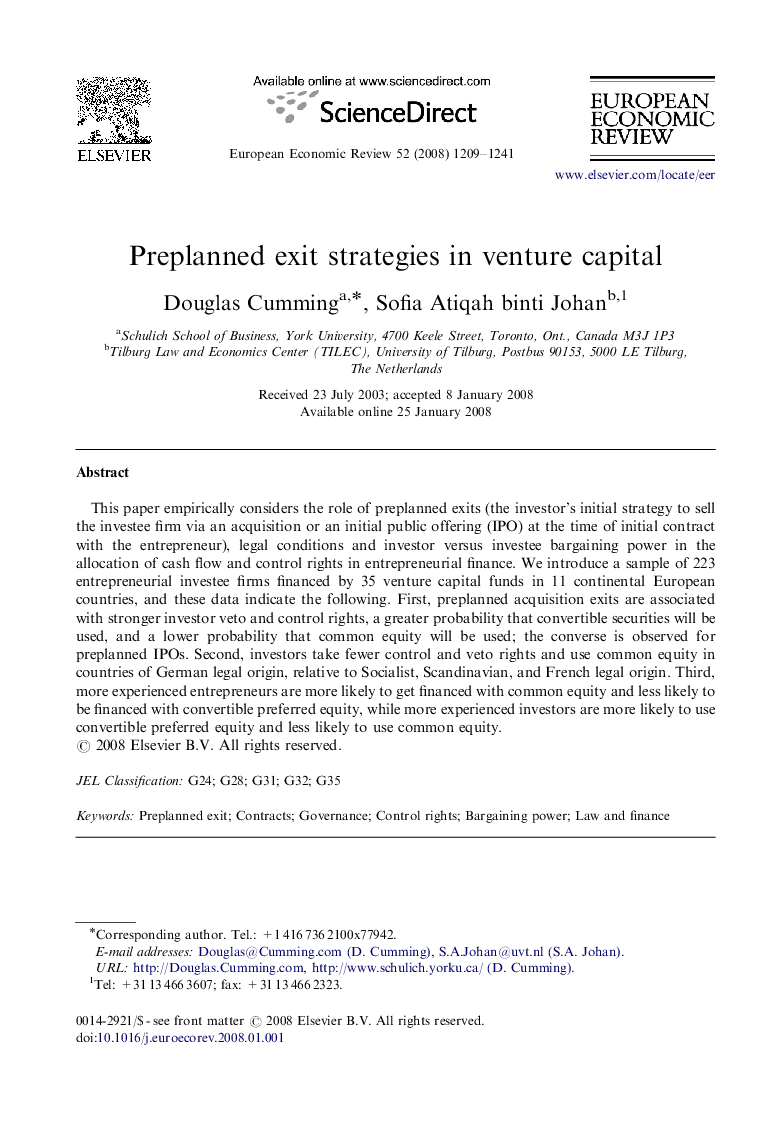| Article ID | Journal | Published Year | Pages | File Type |
|---|---|---|---|---|
| 5067506 | European Economic Review | 2008 | 33 Pages |
Abstract
This paper empirically considers the role of preplanned exits (the investor's initial strategy to sell the investee firm via an acquisition or an initial public offering (IPO) at the time of initial contract with the entrepreneur), legal conditions and investor versus investee bargaining power in the allocation of cash flow and control rights in entrepreneurial finance. We introduce a sample of 223 entrepreneurial investee firms financed by 35 venture capital funds in 11 continental European countries, and these data indicate the following. First, preplanned acquisition exits are associated with stronger investor veto and control rights, a greater probability that convertible securities will be used, and a lower probability that common equity will be used; the converse is observed for preplanned IPOs. Second, investors take fewer control and veto rights and use common equity in countries of German legal origin, relative to Socialist, Scandinavian, and French legal origin. Third, more experienced entrepreneurs are more likely to get financed with common equity and less likely to be financed with convertible preferred equity, while more experienced investors are more likely to use convertible preferred equity and less likely to use common equity.
Related Topics
Social Sciences and Humanities
Economics, Econometrics and Finance
Economics and Econometrics
Authors
Douglas Cumming, Sofia Atiqah binti Johan,
